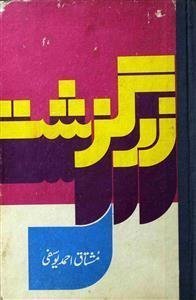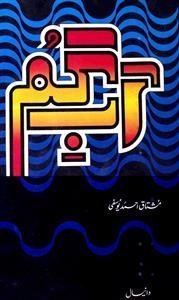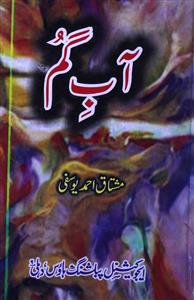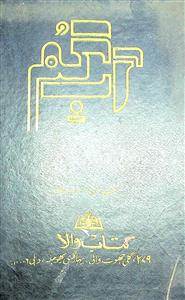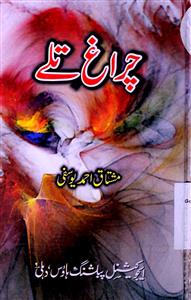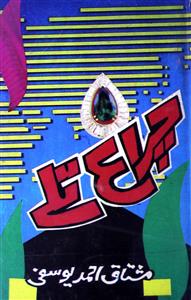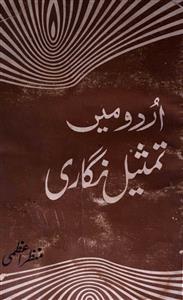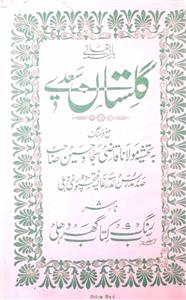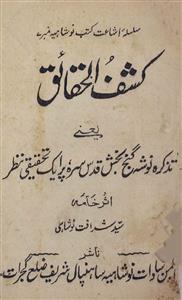 For any query/comment related to this ebook, please contact us at haidar.ali@rekhta.org
For any query/comment related to this ebook, please contact us at haidar.ali@rekhta.org
About The Book
اردو ادب میں اگر مزاح و ظرافت کی بات آئے اور مشتاق احمد یوسفی کا ذکرنہ ہویہ ممکن ہی نہیں ۔مزاح و ظرافت میں وہ ایک ستون کا درجہ رکھتے ہیں۔ تقسیم کے بعد ہی وہ اپنی ادبی زندگی کی شروعات کر چکے تھے جن کے نثر پارے مختلف میگزین کے زینت قرار پائے ۔ یہ ان کا تیسرا مجموعہ ہے جو 1976 میں منظر عام پر آیا ۔ یہ مجموعہ ان ہی کے اندا ز میں ان کی خود کی خود نوشت سوانح بھی ہے ۔ وہ لکھتے ہیں، ’’میں نے اس کتاب کی بنیاد اپنی ذات پر رکھی ہے جس سے ایک مدت سے آزردہ خاطر ہوں۔‘‘ ان کا یہ کمال ہے کہ انہوں نے مزاح کا جومعیار متعین کردیا اب اس کوسر کرنا دیگر کے لیے مشکل ہوگا اگرچہ یہ اپنااستاد ابن انشا کو مانتے ہیں لیکن اپنے شستہ اسلوب کے باعث یوسفی سب سے آگے بڑھ گئے۔ یو سفی نے اپنی کتابوں کی نظر ثانی کے لیے کرنل محمدخاں کا بھی تعاون لیا، لیکن ان کا رنگ خود میں نہیں پڑنے دیا ۔ اس کتاب کے دیباچے میں محاوراتی زبان کی نوک جھونک بھی ہے جس سے اندازہ ہوتا ہے کہ یوسفی صاحب اپنی تحریر وں کو لے کر کس قدر پختہ ہوتے تھے۔ان کی اس کتاب کے ساتھ تمام کتابوں کو پڑھیے اعلیٰ ظرافت کے ساتھ عمدہ زبان کا بھی لطف لیجیے ۔
About The Author
Humour and satire are important components of communication. Life changing messages can be conveyed through this genre in a very jovial manner. The problem, however, lies in the writers’ involvement in scurrilous sentences which might be offensive. Mushtaq Ahmad Yusufi raised the Urdu humour-writing up to the apogee.
Yusufi was born in a well-educated family of Jaipur (British India). His father Abdul Karim Khan Yusufi was the Speaker of the Jaipur Legislative Assembly. Yusufi earned a B.A. from Agra University before coming to Aligarh. He completedan M.A. in Philosophy and LL.B from Aligarh Muslim University and joined the Indian Civil Service soon after. After partition, his family migrated to Pakistan where he became the chairman of the Banking Commission of Pakistan in the 1970s. He has awarded the Sitara-e-Imtiaz and Hilal-e-Imtiaz, the highest civilian honours conferred by the Government of Pakistan. He also received the ‘Kamal-e-Fun Award’, the highest literary award by Pakistan Academy of Letters in 1999. His famous collections include Charagh Taly, Khaakam Badahan, Aab-E-Gum, and Zarguzasht.
His writings are flooded with Persian and Urdu verses and one can find several quotations from illustrious writers such as William Shakespeare, John Donne, Marcel Proust, Rudyard Kipling and Mark Twain in his works. He also shared anecdotes from ancient China, Greece and even from classical Persian and Arabic literature in his writings. No doubt he was one of the greatest humorists and satirists of modern Urdu. After so many attempts made to translate his work in English, Intizar Husain wrote, ‘Yusufi's work is untranslatable’. Todayfew of his quotations can be seen floating on social networking sites:
‘The problem with rumours in Pakistan is that they often turn out to be true.’
‘There are three kinds of enemies – enemy, mortal enemy, and relatives.’
‘The thing that has made the greatest sacrifice for Islam is goats.’
After a prolonged illness, Yusufi passed away in Karachi on 20 June, 2018, at the age of 94.
 For any query/comment related to this ebook, please contact us at haidar.ali@rekhta.org
For any query/comment related to this ebook, please contact us at haidar.ali@rekhta.org
